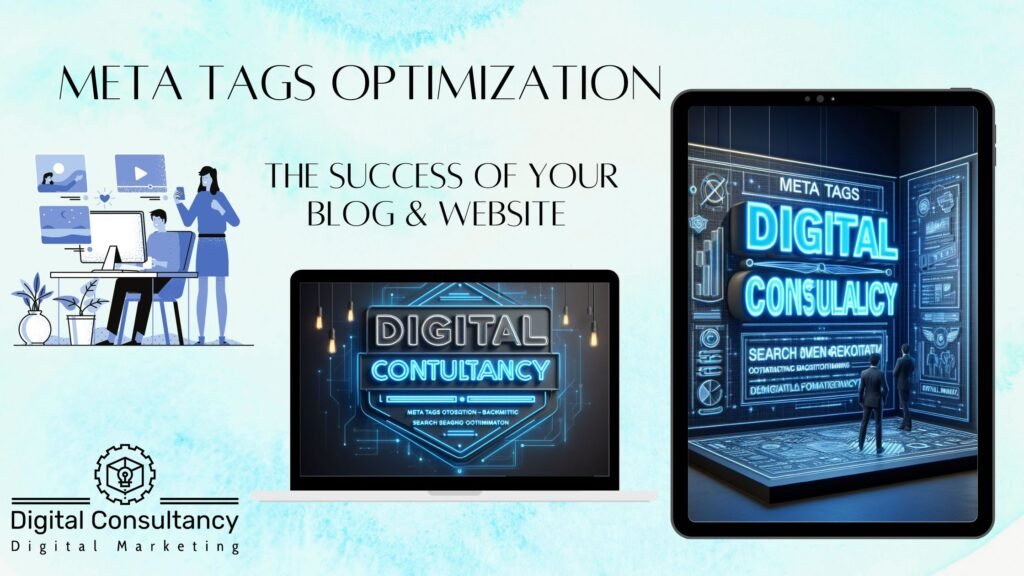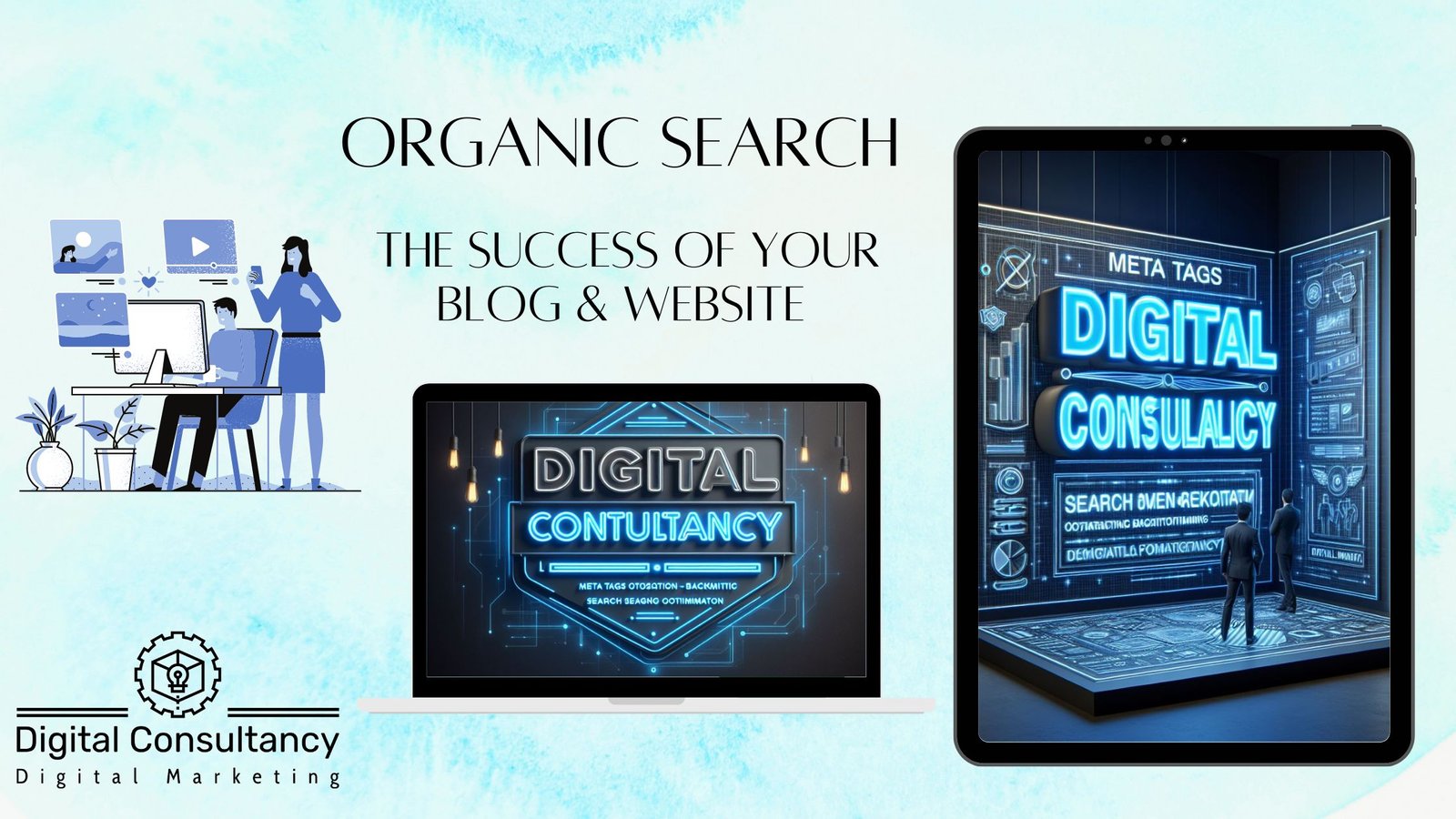Supercharge Your Online Presence Mastering Meta Tags Optimization for SEO Success 2024
Introduction
In the dynamic landscape of Search Engine Optimization (SEO), meta tags stand as silent yet powerful architects of a webpage’s visibility. As online content continues to proliferate, the role of meta tags in enhancing a website’s discoverability and search engine rankings cannot be overstated. This comprehensive guide aims to delve into the intricacies of meta tags optimization, unraveling their significance and providing actionable insights to empower your online presence.
Table of Contents
ToggleAs we embark on this exploration, it’s crucial to grasp the fundamental importance of meta tags. Think of them as the virtual ambassadors of your web pages, communicating with search engines and users alike. In this digital realm, unlocking the potential of meta tags is not merely a best practice; it is the key to ensuring that your content receives the attention it deserves.
Throughout this guide, we will journey through the definition of meta tags, their diverse types, and the pivotal role they play in the ever-evolving realm of SEO. By understanding the nuances of meta tags optimization, you’ll gain the knowledge to fine-tune your web content, thereby elevating your online visibility and driving meaningful engagement.
So, fasten your seatbelts as we embark on this exploration of meta tags optimization – an indispensable chapter in the playbook of successful SEO strategies.
Understanding Meta Tags
Meta tags serve as foundational elements in the architecture of a webpage, playing a crucial role in how search engines interpret and display content. Let’s delve into the nuances of meta tags to unravel their significance
- Definition of Meta Tags
Meta tags are snippets of HTML code embedded in a web page’s header. They provide information about the page’s content to search engines and browsers. Common meta tags include title tags, meta descriptions, and meta keywords (though the latter has diminished in relevance).
- Types of Meta Tags
Title Tags
Crafting compelling and relevant title tags is crucial for attracting user attention.
Meta Descriptions
Meta descriptions provide a concise summary of a page’s content. While not a direct ranking factor, well-crafted meta descriptions can influence click-through rates from search results.
Header Tags (H1, H2, etc.)
While not traditional meta tags, header tags contribute to content structure. Search engines use these tags to understand the hierarchy and importance of content within a page.
- Significance of Meta Tags
Communication with Search Engines
Meta tags act as liaisons between your content and search engine algorithms. They convey crucial information that helps search engines understand the context and relevance of your pages.
User Experience Impact
Beyond SEO, meta tags play a role in enhancing user experience. A well-crafted meta description, for example, can entice users to click on your link by providing a concise preview of what the page offers.
- Evolution in SEO Practices
The landscape of SEO is ever-evolving, and so is the role of meta tags. As search engine algorithms become more sophisticated, emphasis is placed on providing valuable, relevant content. This shift requires a nuanced approach to meta tags optimization that goes beyond mere keyword stuffing.
Understanding meta tags is akin to mastering the language of search engines. As we navigate the subsequent sections of this guide, we’ll unravel the best practices and strategies for optimizing these tags to enhance your website’s visibility and impact in the digital realm.
Key Meta Tags for Optimization
In the realm of Search Engine Optimization (SEO), certain meta tags play pivotal roles in shaping how search engines perceive and present your web content. Let’s delve into the key meta tags that demand your attention when optimizing for better visibility and engagement.
- Title Tags
Importance
It defines the clickable headline in search results and serves as the first impression for users. A compelling and relevant title can significantly impact click-through rates.
Optimization Tips
Include target keywords naturally.
- Meta Descriptions
Role
While not a direct ranking factor, an enticing meta description can influence users to click on your link.
Optimization Tips
Craft unique and compelling descriptions for each page.
Stay within the recommended character limit (around 150-160 characters).
- Header Tags (H1, H2, etc.)
Role in Optimization
Header tags contribute to the hierarchical structure of your content. While not traditional meta tags, they impact how search engines interpret the importance and flow of information on your page.
Optimization Tips
Ensure that the hierarchy accurately represents the content’s structure.
As you embark on the journey of optimizing these key meta tags, remember that the goal goes beyond mere compliance with search engine algorithms. It’s about creating a seamless user experience while providing search engines with the necessary cues to understand and rank your content effectively.
In the upcoming sections, we will explore best practices for optimizing these meta tags, aligning your content with both user expectations and search engine requirements for a robust SEO strategy. Stay tuned for actionable insights that will empower you to harness the full potential of these key meta tags.
Meta Tags Best Practices
Optimizing meta tags involves more than just inserting keywords. To truly harness their potential and boost your website’s visibility, consider the following best practices.
- Keyword Research
Strategic Integration
Conduct thorough keyword research to identify terms relevant to your content. Strategically integrate these keywords into your title tags and meta descriptions.
Natural Placement
Ensure that keywords are seamlessly woven into your meta tags. Avoid keyword stuffing, as it can harm both user experience and SEO.
- Unique and Descriptive Content
Tailored Descriptions
Craft unique meta descriptions for each page. A well-written description provides users with a clear understanding of what the page offers, increasing the likelihood of clicks.
Avoid Duplicate Content
Steer clear of using identical meta tags across multiple pages. Each page should have its own set of meta tags reflecting its unique content.
- Optimal Lengths
Title Tags
Keep title tags within the recommended character limit (usually 50-60 characters) to ensure they display correctly in search results.
Meta Descriptions
Aim for concise yet informative meta descriptions, staying within the range of 150-160 characters. This ensures visibility and avoids truncation in search results.
- Regular Review and Updates
Stay Current
Search algorithms evolve, and so should your meta tags. Regularly review and update your meta tags to align with current SEO trends and user expectations.
Performance Monitoring
Utilize tools like Google Search Console to monitor the performance of your meta tags. Analyze click-through rates and adjust your approach based on data insights.
- Engaging Titles and Descriptions
Compelling Titles
Create titles that not only incorporate keywords but also entice users to click. A compelling title increases the likelihood of users choosing your page over others in search results.
Call-to-Action in Descriptions
Include a call-to-action or value proposition in meta descriptions to encourage users to take the next step, whether it’s clicking, reading, or exploring further.
- Mobile Optimization
Responsive Design
Ensure that your meta tags are optimized for mobile users. With an increasing number of searches happening on mobile devices, a responsive design is crucial for a positive user experience.
- Avoid Special Characters
Clean Formatting
Steer clear of using special characters unnecessarily in meta tags. Clean and well-formatted tags enhance readability and improve the overall user experience.
By incorporating these best practices into your meta tags optimization strategy, you’ll not only enhance your website’s SEO but also provide a more engaging and user-friendly experience. In the next section, we’ll explore the technical considerations that can further refine your approach to meta tags optimization.
Technical Considerations for Meta Tags Optimization
Optimizing meta tags goes beyond crafting compelling content; it involves addressing technical aspects to ensure your web pages are efficiently crawled and indexed by search engines. Here are key technical considerations for effective meta tags optimization:
- Canonical Tags
Purpose
Canonical tags help prevent issues related to duplicate content by specifying the preferred version of a page. This is crucial for maintaining the integrity of your site’s SEO.
Implementation Tips

Place canonical tags on pages with similar or identical content, indicating the primary version that search engines should prioritize.
- Noindex and Nofollow Tags
Usage Cases
Utilize noindex tags on pages you don’t want to appear in search engine results. Nofollow tags are handy for instructing search engines not to follow specific links, preserving link equity.
Implementation Tips
Apply noindex to pages like thank-you or confirmation pages, and nofollow to links leading to unimportant or non-indexable content.
- Structured Data Markup
Enhanced Rich Snippets
Implement structured data markup, such as Schema.org, to provide search engines with additional context about your content. This can result in enhanced rich snippets in search results.
Optimization Tips
Markup data like product information, reviews, or events to make your content more appealing in search results.
- Mobile Optimization
Responsive Design
Ensure your website has a responsive design that adapts to various screen sizes. The optimization not only improves the user experience but also aligns seamlessly with the preferences of search engines
Mobile-Friendly Meta Tags
Optimize meta tags specifically for mobile users, considering the limited screen space. Craft concise titles and meta descriptions that display effectively on mobile devices.
- Speed Optimization
Page Load Times
Search engines consider page speed in their ranking algorithms. Optimize your website’s loading times to improve user experience and potentially boost your SEO.
Optimized Images
Compress and optimize images to reduce file sizes without compromising quality, contributing to faster page loading.
- SSL Certificates
Secure Connection
Ensure your website uses HTTPS through the implementation of SSL certificates. Secure websites are favored by search engines, and HTTPS is a ranking signal.
Update Internal Links
Update internal links to use the HTTPS version of your URLs to maintain consistency.
- Regular Audits and Monitoring
Technical SEO Audits
Conduct regular technical SEO audits to identify and rectify issues affecting your website’s performance. Tools like Google Search Console can assist in monitoring crawl errors and other technical issues.
404 Page Handling
Customize your 404 error pages to provide a user-friendly experience and guide users back to relevant content.
By addressing these technical considerations, you not only enhance your website’s SEO but also ensure a smooth and efficient interaction between your content and search engine algorithms. In the following section, we’ll explore tools that can aid in the optimization process, making your efforts more streamlined and effective.
Tools for Meta Tags Optimization
Optimizing meta tags requires a strategic approach, and fortunately, there are several tools available to streamline the process and enhance the effectiveness of your efforts. Here are key tools that can assist you in optimizing meta tags for improved search engine visibility:
- Google Search Console
Purpose
Google Search Console is a fundamental tool for web developers. It provides insights into how Googlebot views your site, alerts you to potential issues, and offers valuable data on search performance.
Optimization Benefits
Utilize Google Search Console to monitor the performance of your meta tags, identify indexing issues, and receive valuable feedback on how your content appears in search results.
- Yoast SEO (WordPress Plugin)
Purpose
Specifically designed for WordPress users, Yoast SEO is a comprehensive plugin that facilitates on-page SEO. It includes features for optimizing meta tags, readability analysis, and more.
Optimization Benefits
Easily manage and optimize title tags, meta descriptions, and other on-page elements within the WordPress environment. Yoast provides real-time feedback to help improve your content’s SEO.
- SEMrush
Purpose
SEMrush is an all-encompassing SEO tool that offers features for keyword research, site auditing, and competitor analysis. It provides insights into how well your meta tags are performing.
Optimization Benefits
Leverage SEMrush to conduct in-depth keyword research, track your rankings, and receive recommendations for optimizing meta tags based on competitor analysis.
- Moz Pro
Purpose
Moz Pro is a comprehensive SEO suite that includes features for site audits, rank tracking, and link analysis. It provides actionable insights to enhance your website’s overall SEO performance.
Optimization Benefits
Use Moz Pro to conduct site audits, identify meta tag issues, and receive recommendations for improving on-page elements to boost your SEO.
- Screaming Frog SEO Spider
Purpose
Screaming Frog is a powerful website crawling tool that helps you analyze on-page SEO elements. It provides a detailed overview of your website’s structure and meta tags.
Optimization Benefits
Use Screaming Frog to identify missing or duplicate meta tags, analyze header tags, and gain a comprehensive view of your website’s SEO health.
- Google PageSpeed Insights
Purpose
PageSpeed Insights analyzes the loading speed of your web pages and provides suggestions for improvement. While not directly focused on meta tags, page speed is a crucial SEO factor.
Optimization Benefits
A faster-loading website contributes to a positive user experience and can indirectly impact SEO. Use PageSpeed Insights to identify areas for improvement in terms of page speed.
- SERPsim – SERP Snippet Generator
Purpose
SERPsim allows you to preview how your title tags and meta descriptions will appear in search results. It helps you optimize your snippets for maximum visibility and user engagement.
Optimization Benefits
Test different title tag and meta description variations to see how they will look in search results. This can aid in crafting more compelling and effective snippets.
By incorporating these tools into your meta tags optimization strategy, you can gain valuable insights, track performance, and make data-driven decisions to enhance your website’s visibility in search engine results. In the concluding section, we’ll recap the key points discussed and encourage you to implement these insights for a robust meta tags optimization strategy.
Unleashing the capabilities of meta tags for SEO opens doors to enhanced online visibility and improved search engine rankings
In the ever-evolving landscape of Search Engine Optimization (SEO), meta tags stand as silent architects, shaping the digital footprint of your web content. Understanding and optimizing meta tags is not merely a checkbox in the SEO checklist; it’s the key to unlocking your website’s potential for higher visibility, improved click-through rates, and enhanced user engagement.
- Meta Tags as SEO Ambassadors
Meta tags act as ambassadors, representing your content to search engines. Each tag – from the title tag to the meta description – communicates vital information about your webpage. Crafting these tags strategically is akin to creating a compelling elevator pitch for your content in the vast digital landscape.
- Title Tags: The First Impression
The title tag is the first interaction users have with your content in search results. A carefully crafted title not only influences click-through rates but also impacts how search engines rank your page. Balancing relevance, clarity, and strategic use of keywords in title tags is a cornerstone of effective meta tags optimization.
- Meta Descriptions: A Gateway to Content

Meta descriptions serve as a gateway, offering users a preview of your page’s content. While not a direct ranking factor, an engaging and informative meta description can entice users to choose your link over others. It’s your opportunity to make a compelling case for why users should explore your content further.
- Header Tags: Structural Signposts
Though not traditional meta tags, header tags (H1, H2, etc.) play a vital role in content organization. They serve as signposts for both users and search engines, guiding them through the hierarchy of information. Optimizing header tags contributes to a clear and user-friendly structure.
- Beyond Keywords: The Nuanced Approach
As search algorithms evolve, meta tags optimization requires a nuanced approach. It goes beyond stuffing keywords; it’s about providing value. Understanding user intent and delivering content that aligns with those expectations is the modern mantra for effective SEO through meta tags.
- Technical Mastery: Canonical, Noindex, Nofollow
Technical considerations like canonical tags, noindex, and nofollow directives play a crucial role in avoiding pitfalls such as duplicate content issues. Mastery of these technical aspects ensures that search engines navigate and index your content efficiently.
- Responsive Design and Mobile Optimization
With an increasing number of users accessing content on mobile devices, meta tags optimization extends to responsive design. Ensuring that your titles and descriptions are optimized for mobile users contributes not only to SEO but also to a positive user experience.
- Tools as Allies: Leveraging Technology
Embrace the tools at your disposal. Platforms like Google Search Console, Yoast SEO, SEMrush, and others are your allies in the journey of meta tags optimization. They provide insights, identify issues, and offer recommendations to refine your strategy.
- Constant Vigilance: Regular Audits and Updates
SEO is not a one-time endeavor, and neither is meta tags optimization. Regular audits, updates, and a vigilant eye on performance metrics are imperative. Staying current with SEO trends ensures that your meta tags continue to be effective in the ever-changing digital landscape.
- User-Centric Approach: Beyond Algorithms
While optimization for search engine algorithms is essential, a user-centric approach is paramount. Crafting meta tags that resonate with users, answering their queries, and delivering a seamless experience are the pillars of long-term SEO success.
In conclusion, unlocking the potential of meta tags for SEO is a multifaceted endeavor. It requires a blend of strategic keyword usage, technical proficiency, user-centricity, and a commitment to staying abreast of industry trends. As you embark on this journey, remember that meta tags are not just HTML snippets; they are your website’s ambassadors in the vast and competitive realm of the digital landscape. Optimize them thoughtfully, and watch as your content rises to new heights in search engine rankings, bringing your brand to the forefront of online visibility.
Call to Action
Elevate Your SEO Game with Meta Tags Optimization
Congratulations! You’ve navigated the intricate world of meta tags optimization, unlocking the potential to propel your website to new heights in the digital landscape. Now, it’s time to put this knowledge into action and witness the transformative impact on your SEO strategy.
Implement the Insights
Apply the best practices outlined in this guide to your meta tags. Craft compelling title tags, engaging meta descriptions, and structure your content with user-friendly header tags. Let the insights gleaned here become the blueprint for your enhanced online presence.
Leverage Tools for Efficiency
Integrate SEO tools like Google Search Console, Yoast SEO, SEMrush, and others into your workflow. These tools are designed to streamline the optimization process, providing real-time feedback and actionable recommendations.
Conduct Regular Audits
Commit to regular audits of your meta tags and overall SEO strategy. Keep an eye on performance metrics, identify areas for improvement, and adapt to the ever-evolving landscape of search engine algorithms.
Engage with Your Audience
Encourage your audience to share their thoughts, experiences, and questions in the comments section. Share your challenges, successes, and learnings in the realm of meta tags optimization. Community engagement enhances the learning experience for everyone.
Share Your Success Stories
As you implement these strategies, share your success stories. If you witness improvements in search rankings, click-through rates, or overall user engagement, let the community know. Your experiences can inspire and guide others on their SEO journey.
Stay Inquisitive and Adaptive
SEO is dynamic, and staying inquisitive is key to success. Stay updated on industry trends, algorithm changes, and emerging tools. Adapt your meta tags optimization strategy to align with the evolving demands of the digital landscape.
Connect with the Community
Join forums, discussion groups, or social media communities related to SEO. Networking with fellow enthusiasts can provide additional insights, solutions to challenges, and a sense of camaraderie in the ever-evolving world of SEO.
Remember, meta tags are not static elements; they are dynamic tools that evolve with your content, user expectations, and search engine algorithms. By implementing the strategies discussed and remaining committed to continuous improvement, you’re not just optimizing meta tags; you’re shaping a more robust and resilient online presence.
So, embark on this journey with confidence, curiosity, and a commitment to excellence. Elevate your SEO game with the strategic optimization of meta tags, and watch as your website emerges as a beacon of relevance and authority in the digital realm. The power to enhance your online visibility is in your hands – seize it, optimize it, and soar to new heights!
Mail Us ahmadzebabbasi@live.com
You Can Read Also About On Page SCO![]()
Watsap Us








